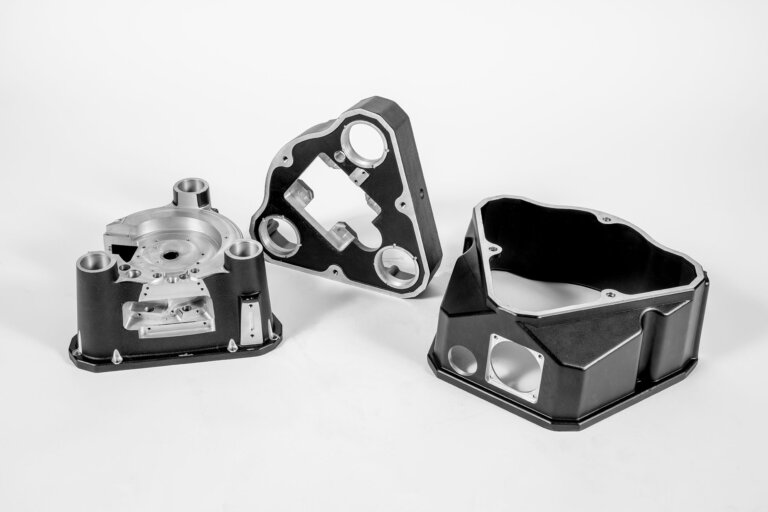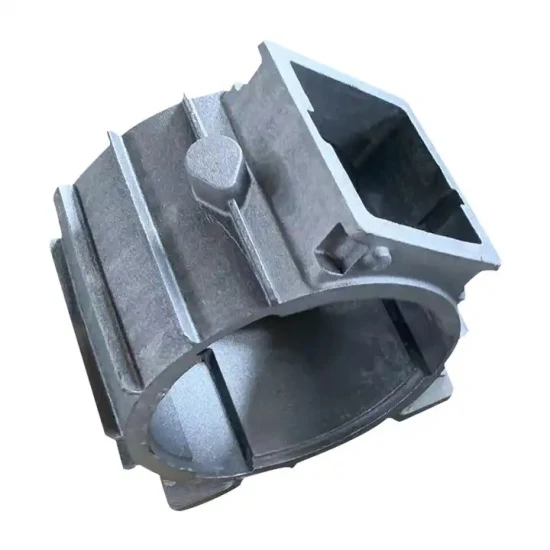All about Alcast Company
The Best Guide To Alcast Company
Table of ContentsAlcast Company Can Be Fun For AnyoneNot known Facts About Alcast CompanyNot known Facts About Alcast CompanyAlcast Company for BeginnersNot known Factual Statements About Alcast Company Some Known Details About Alcast Company
The subtle distinction hinges on the chemical content. Chemical Comparison of Cast Aluminum Alloys Silicon advertises castability by decreasing the alloy's melting temperature and boosting fluidness during casting. It plays an essential duty in permitting intricate mold and mildews to be filled accurately. Furthermore, silicon adds to the alloy's toughness and wear resistance, making it beneficial in applications where toughness is crucial, such as automotive parts and engine elements.It additionally enhances the machinability of the alloy, making it easier to process into completed products. In this means, iron adds to the general workability of light weight aluminum alloys.
Manganese adds to the strength of light weight aluminum alloys and enhances workability. Magnesium is a light-weight component that gives stamina and effect resistance to aluminum alloys.
The Alcast Company Diaries
Zinc boosts the castability of aluminum alloys and helps manage the solidification procedure throughout spreading. It boosts the alloy's toughness and solidity.

The primary thermal conductivity, tensile strength, yield stamina, and prolongation vary. Select suitable basic materials according to the performance of the target product created. Among the above alloys, A356 has the greatest thermal conductivity, and A380 and ADC12 have the cheapest. The tensile limit is the opposite. A360 has the very best return toughness and the highest elongation rate.
Getting My Alcast Company To Work

In precision spreading, 6063 is well-suited for applications where intricate geometries and top notch surface area finishes are vital. Examples include telecommunication units, where the alloy's premium formability allows for smooth and aesthetically pleasing designs while maintaining structural honesty. In the Lights Solutions industry, precision-cast 6063 components produce elegant and effective lights fixtures that need complex shapes and great thermal efficiency.
The A360 exhibits exceptional prolongation, making it ideal for complex and thin-walled elements. In precision spreading applications, A360 is appropriate for industries such as Customer Electronic Devices, Telecommunication, and Power Devices.
The 2-Minute Rule for Alcast Company
Its special residential or commercial properties make A360 a beneficial choice for precision spreading in these industries, boosting item sturdiness and high quality. Light weight aluminum alloy 380, or A380, is an extensively made use of spreading alloy with numerous unique features. It provides superb castability, making it a suitable choice for precision spreading. A380 exhibits good fluidness when molten, guaranteeing detailed and detailed mold and mildews are properly reproduced.
In accuracy spreading, light weight aluminum 413 shines in the Consumer Electronics and Power Devices sectors. It's commonly used to craft elaborate components like smartphone housings, camera bodies, and power tool coverings. Its accuracy is impressive, with limited resistances up to 0.01 mm, making sure remarkable product assembly. This alloy's superior corrosion resistance makes it an excellent selection for exterior applications, guaranteeing resilient, sturdy items in the pointed out sectors.
Getting The Alcast Company To Work
The aluminum alloy you choose will significantly affect both the spreading process and the buildings of the final item. Because of this, you should make your decision very carefully and take an informed technique.
Establishing the most ideal light weight aluminum alloy for your application will certainly mean weighing a broad range of attributes. These comparative alloy attributes comply with the North American Die Casting Association's guidelines, and we've split them right into 2 groups. The initial classification addresses alloy attributes that impact the manufacturing process. The second covers qualities affecting the buildings of the end product.
The Definitive Guide for Alcast Company
The alloy you pick for die casting directly impacts several elements of the casting procedure, like how simple the alloy is to collaborate with and if it is vulnerable to casting problems. Warm breaking, likewise referred to as solidification splitting, is a typical die spreading flaw for aluminum alloys that can lead to inner or surface-level splits or fractures.
Certain aluminum alloys are much more at risk to hot cracking than informative post others, and your choice ought to consider this. It can harm both the actors and the die, so you should look for alloys with high anti-soldering buildings.
Rust resistance, which is already a notable characteristic of light weight aluminum, can differ considerably from alloy to alloy and is a necessary characteristic to think about depending upon the environmental conditions your item will be exposed to (Foundry). Wear resistance is an additional residential or commercial property typically sought in aluminum products and can differentiate some alloys